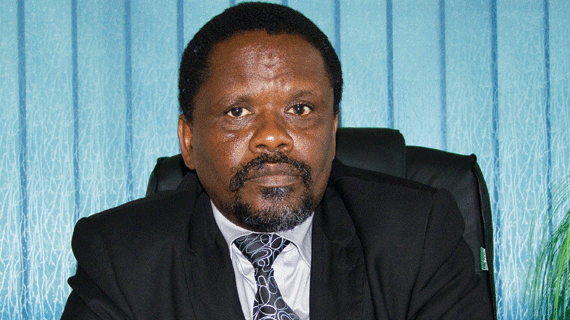
FOR the coming three to four weeks I will endeavour to look into and define three words that are usually misunderstood and mystified. The words are democracy, dictatorship and dynasty.
For this week’s article, I will confine the discourse to the term democracy. In everyday usage, democracy simply means a system that distributes political power into the hands of the public which forms the electorate.
Tomas Garrigue Masaryk, the first president of Czechoslovakia, views democracy as a faulty system, owing to the fact that people who run it have faults. The word democracy derives from a Greek word Demokratia, Demo means people and the kratia refers to power, so democracy is people power.
However, the question remains as to which people, since people are divided into two or more categories namely, rulers and the ruled, the rich and the poor. Democracy is the opposite of aristokratia meaning the rule of the elite.
From the outset, democracy was premised on faulty foundations. In classical Athens, democratic citizenship was granted only to the elite class of freemen, slaves and women were excluded. Full enfranchisement only took to the stage in the 19th and 20th centuries, in response to pressure exerted by the suffrage movements.
Karl Pooper defines democracy as a system that enables people to control their leaders and to oust them (where necessary) without resorting to a revolution. The use of legitimate or constitutional means of recalling or removing leadership.
Forms of democracy may be an absolute monarchy or an oligarchy. Absolute monarchy is a situation where power resides in an individual, while in an oligarchy power is wielded by a small number of people.
These forms of democracy can further be broken in direct or representative democracy. In a direct democracy all eligible citizens have direct and active participation in the political decision-making. On the other hand, in a representative democracy, eligible citizens remain the sovereign power that exercises its political power through proxies, the elected representatives.
- Chamisa under fire over US$120K donation
- Mavhunga puts DeMbare into Chibuku quarterfinals
- Pension funds bet on Cabora Bassa oilfields
- Councils defy govt fire tender directive
Keep Reading
The two variants of democracy have their disadvantages and advantages. The eligible voters or citizens may not be competent enough to execute the business at hand.
On one hand representatives may abandon the principal’s mandate and pursue own interests. A good example is our MPs who are hardly articulating constituency issues, but instead are jostling for allowances, cars and exemption from paying tollgate fees.
The worst scenario is that MPs coming to constituencies only towards and during elections and thereafter disappear. Someone has rightly described some MPs as “missing persons”.
While authors are not in agreement of the definition of democracy, generally there is consensus in that the main pillars of any democracy are legal equality, personal freedoms and a rule of law. In essence democracy treats all human beings as equal before the law.
In a representative democracy, every vote has an equal weight, meaning that every voter has the right to become a representative (if so elected).
Some theories extend the word democracy to embrace liberal democracy, which is a variant of representative democracy that entails political pluralism, equality before the law, the right to petition elected officials to redress grievances raised, due processes civil liberties, human rights and civil society issues.
On the other hand, democracy is viewed as underpinned by the upward control, meaning sovereignty premised at lowest wrungs of authority, political equality and social norms by which individuals and institutions can consider as acceptable acts that reflect the two principles of upward control and political equality.
In the United Kingdom, sovereignty rests with parliament, while at the same time judiciary independence is upheld. Separation of powers is central in the United states political System. India, the world’s largest democracy, subjects parliamentary sovereignty to the constitution, inclusive of the judicial review.
As alluded to earlier, democracy has its own inconsistencies, for example the doctrine of majority rule. Under this doctrine, it would appear minority or ethinical groups’ interests must always subordinate themselves to those of the majority.
The minorities cannot continue to suffer under the tyranny of the majority. Their freedoms of political expression, speech, the press must be availed a window through which they can express their inner feelings without fear of retribution.
Moses Tsimukeni Mahlangu is the general-secretary for Zimbabwe Urban Councils Workers’ Union. He is a labour consultant and arbitrator.
Feedback: E-mail: [email protected]










